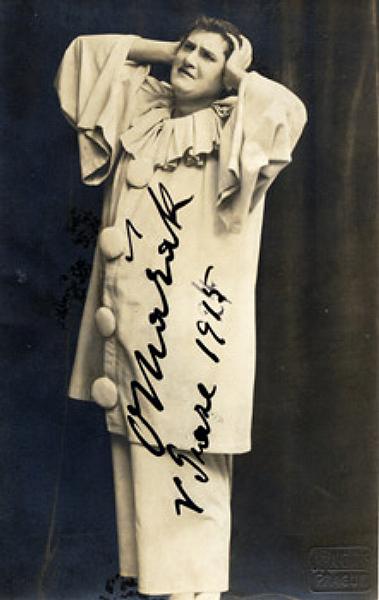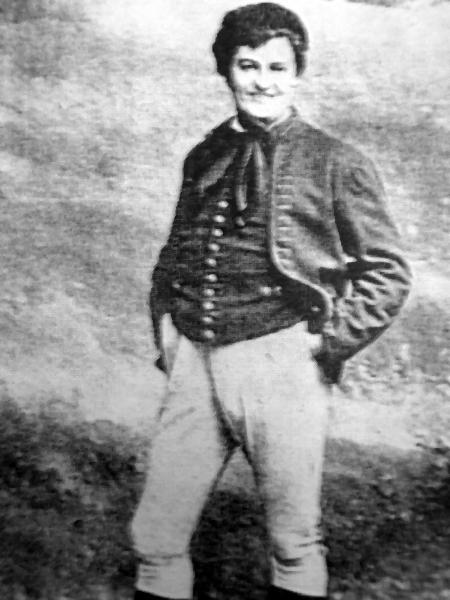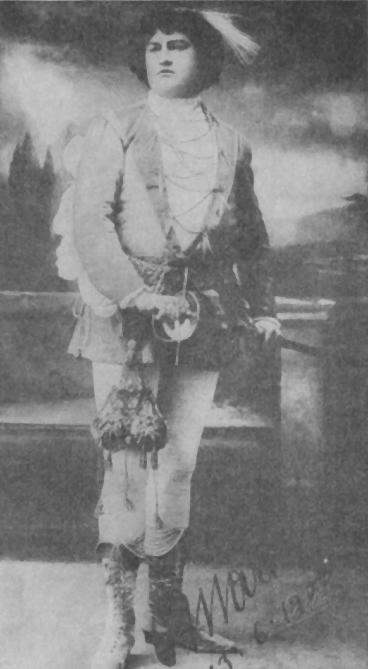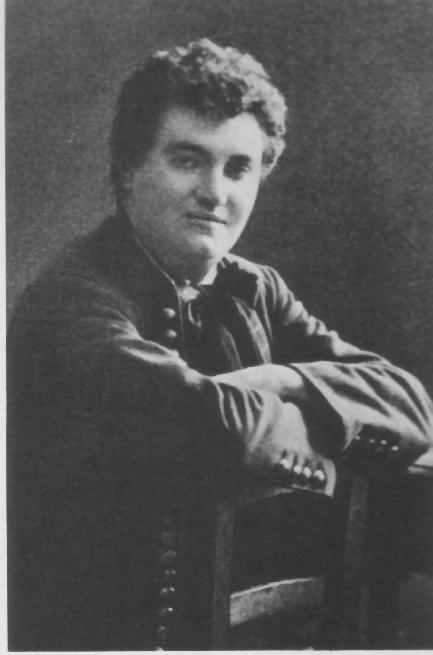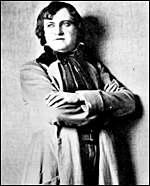Otakar Mařák
Otakar Mařák as Jeník
Otakar Mařák as Roméo
Otakar Mařák as Jeník
In RA format
In RA format
1909, His Master's Voice
In RA format
In RA format
Otakar Mařák was born on January 5th, 1872 in Esztergom (today a Hungarian town on the border with Slovakia, the population
was of course always mixed Hungarian-Slovak, and in the Hapsburg Empire, all of Slovakia was part of Hungary, anyway).
Mařák studied painting in Prague – and voice only as a hobby, with Olga
Paršová-Zikešová. At some point, he must have changed his mind, because he made his tenor debut in
Brno on 1 February 1899 as Faust, and came to the National Theater in Prague the same year; he was a member until 1901, and
again from 1903 to 1907. In between, he sang at various Czech, Austrian and German theaters (Frankfurt and the Vienna Staatsoper
for instance; outside Czech lands, by the way, he would use the German translation of his first name, Ottokar).
From 1907 to 1911, he sang at the Berlin Komische Oper (Pedro, Cavaradossi, Jeník, José, Massenet's des Grieux).
In 1908, he made successful guest appearances at Covent Garden (José, Turiddu and Canio); he was back to London in 1913,
for the English premiere of Ariadne auf Naxos at His Majesty's Theatre, where he sang Bacchus. At that time, he was a member of
the Hamburg opera house (1911–14), but for the 1913/14 season, he was also in Chicago, where he was Parsifal in the local
premiere.
He appeared at a lot more theaters in the course of his career: Munich, Staatsoper Berlin, Dresden, Paris, Brussels, Budapest,
Barcelona, Madrid... But the center of his activity was the National Theater in Prague, where he was a regular guest from 1913
to 1934 and sang hundreds of performances – albeit it was a difficult relationship. Mařák was regularly at
odds with the management, because he refused to sing certain roles, because he stayed abroad longer than stipulated, or because
he made contracts with other opera theaters without informing the National Theater.
After World War I, Mařák acquired US citizenship, and in 1924, he became the sole European marketer of Phonofilm
(an early sound film technology). It was an economic disaster; in 1929 and 1930, he sang daily operetta performances at the
theater in Smíchov (a Prague suburb) so as to pay his debts.
In 1934, he went to the USA again, where he sang on the radio and taught voice in Chicago. When he suffered a stroke, he fell
back into poverty, and it was only with the help of his fellow countrymen that he was able to return to Prague, where he died
on July 2nd, 1939.
Mařák had an incredibly vast repertory; to name but a few more of his roles: Tamino, Idomeneo, Florestan, Hüon,
Pollione, Alessandro Stradella, Raoul, Fra Diavolo, Georges Brown, Hoffmann, Wilhelm Meister, Julien, Gérald, Don
José (probably his most performed role), Werther, Stolzing, Tannhäuser, Lenskij, Sadko, German, Dalibor, Jarek
(Čertova stěna), Vít (Tajemství), Ladislav Podhajský (Dvě vdovy), Lukáš
(Hubička), Alfredo, Duca, Manrico, Riccardo, Radamès, Prince (in Dvořák's Rusalka), Rodolfo,
Königssohn (in Humperdinck's Königskinder).
Reference 1, reference 2: Kutsch &
Riemens
I wish to thank Vladimir Efimenko for the picture (bottom) and two recordings (Prodaná nevěsta, Cavalleria rusticana).
I wish to thank Thomas Silverbörg for the recording (Lohengrin).
I wish to thank Helmut Krautschneider for the picture (autographed).
I wish to thank Lynn Samohel for the pictures (Jeník, Roméo).
|
